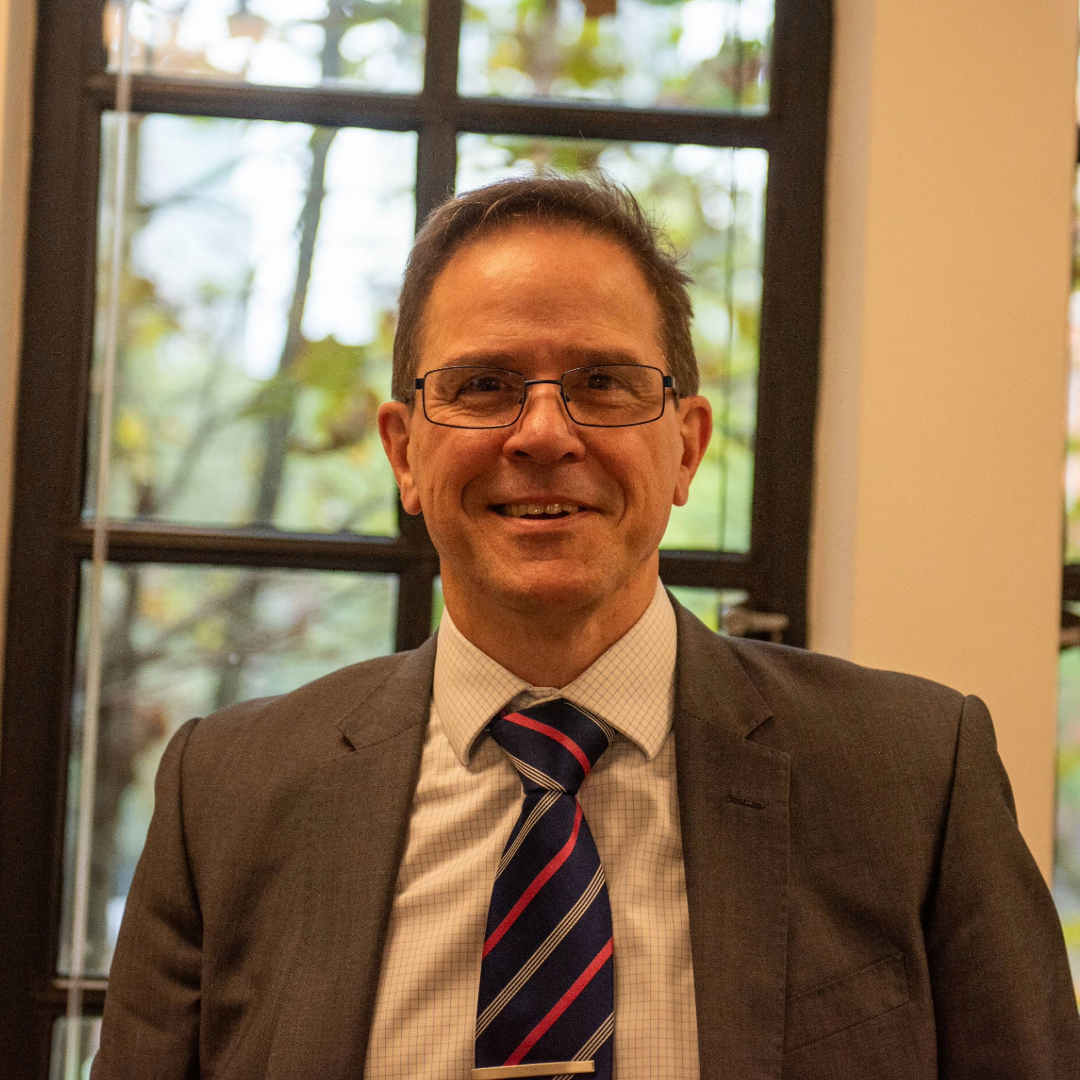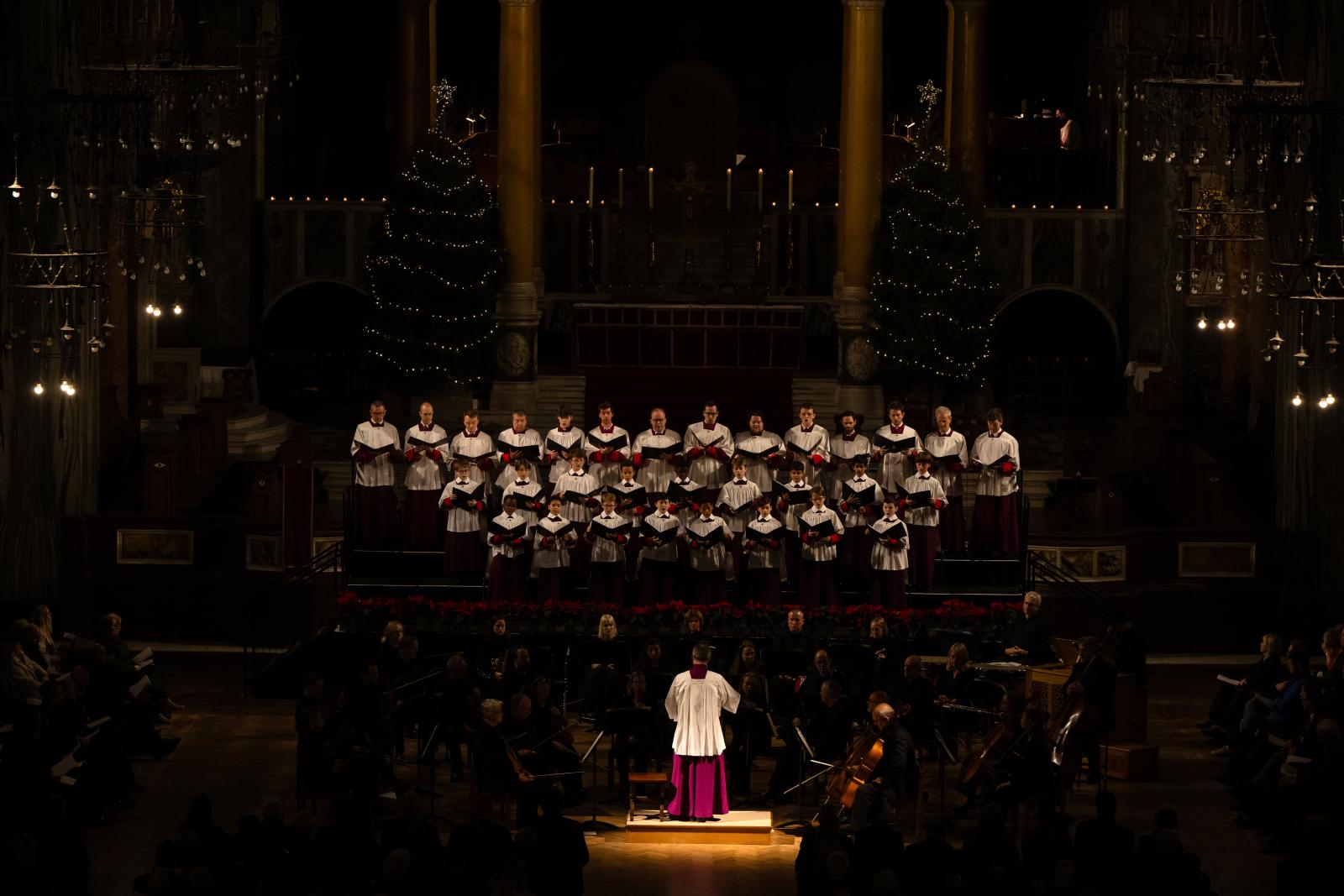Richard Harries, the Director of Caritas Westminster, talks about his personal journey of faith and the role music played drawing him ever closer to God.
 Music has always meant a great deal to me. My parents met through a shared love of musical drama, and growing up in the Caribbean I was lucky enough to perform onstage with the Jamaica Amateur Operatic Society. However, it was only when I arrived in the UK at the tender age of ten that I started singing with a church choir. Rooted in the Anglican choral tradition, I fell in love with all the classics: ‘O, for the wings of a dove’, ‘When I survey the wondrous cross’, ‘There is a green hill far away’, ‘Now thank we all our God’.
Music has always meant a great deal to me. My parents met through a shared love of musical drama, and growing up in the Caribbean I was lucky enough to perform onstage with the Jamaica Amateur Operatic Society. However, it was only when I arrived in the UK at the tender age of ten that I started singing with a church choir. Rooted in the Anglican choral tradition, I fell in love with all the classics: ‘O, for the wings of a dove’, ‘When I survey the wondrous cross’, ‘There is a green hill far away’, ‘Now thank we all our God’.
Saint Augustine famously wrote that ‘he who sings prays twice’. Others have written about the ‘numinous theology’ to be found in sacred music. Yet my deep affection for hymns ancient and modern turned out to be woefully inadequate when confronted by an angry and arrogant teenage atheism. Attending a school where religious education was not considered a serious subject, my misguided assumptions about God and the nature of reality went wholly unchallenged and uncorrected. If I was a confirmed Anglican at age 12, I was a confirmed atheist by age 16.
And so I simply got on with my life. Convinced that religion in general, and Christianity in particular, was little more than ‘bronze age mumbo jumbo’, I studied mathematics at university before launching into a career in the civil service. Completely immersed in a materialist, ‘scientistic’ view of the world, I thought of the social problems facing the country as little more than technical challenges to be resolved by well-intentioned but ethically neutral experts.
Thus it was in my early 30s, having scaled the dizzy heights of the senior civil service, that I found myself attending an evening lecture by the renowned human rights lawyer, Michael Mansfield KC. Invited to the post-lecture dinner, I was looking forward to probing him on all sorts of (what I thought were) terribly interesting policy questions. But I didn’t end up sitting next to Michael Mansfield KC. Instead I ended up sitting next to his wife Yvette, who promptly recruited me to her community choir, the Clapham-based Festival Chorus. To this day, I don’t quite know why I said ‘yes’!
But I did say yes and so it was, a couple of weeks later on a rainy night in south London, that I found myself with three other tenors being taught the finer points of Church Slavonic in preparation for a performance of Rachmaninov’s Vespers the following month. Ten years later, having sung countless Requiem Masses and other choral gems such as Saint John Henry Newman’s The Dream of Gerontius, I was received into the Catholic Church.
My long journey back from atheism to faith was not made easier by my chosen profession. It’s a sad fact that there is little space for religion in modern public life, and certainly any overt expression of belief in the civil service is considered what Sir Humphrey Appleby might have described as ‘career limiting’. And yet, I couldn’t help noticing that the colleagues I most admired across Whitehall all had something of a quiet faith about them, a ‘still small voice’ that seemed to guide their decisions.
The breakthrough occurred when I finally realised what Mother Church has known for millennia: that faith and reason are not implacably opposed to each other but are in fact beautifully integrated; that all my angry teenage arguments were not in fact original but had been asked and answered by minds far greater than mine; that I was not the master of my own destiny but a broken soul in need of grace; that God has a plan for me and that I must submit my will to his.
As I look back now through the eyes of faith, I consider it providence not coincidence that my return to the Church in 2012 coincided with the creation of Caritas Westminster. To paraphrase G.K. Chesterton’s Father Brown, I had long ago been caught with an unseen hook and an invisible line, long enough to let me wander to the ends of the world and yet able to bring me back ‘with a twitch upon the thread’. The hook of course was music and the line was what Pope Francis calls the via pulchritudinis, the way of beauty. Whether it is the classic hymns of Isaac Watts and Charles Wesley or the modern melodies of Emma Fradd and Bob Dylan, I will always, with the Psalmist, ‘praise God’s name in song and glorify him with thanksgiving’.
